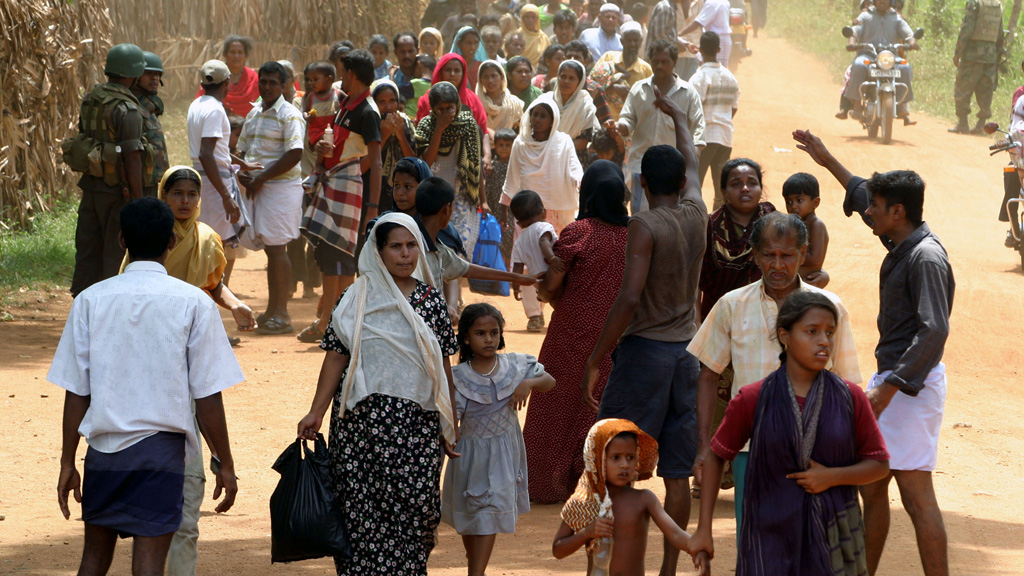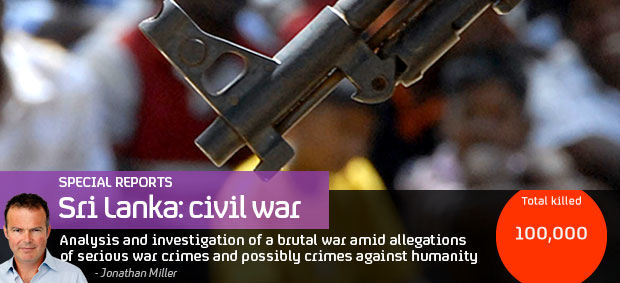UN guilty of ‘systematic failure’ in Sri Lanka
An internal United Nations report accuses the organisation of a “systematic failure” in the last months of Sri Lanka’s civil war.

The BBC reported today that it has seen a leaked draft of an internal report into the UN’s handling of the final months of the bloody Sri Lankan war, which ended in May 2009.
The report says the UN’s actions in that period amounted to a “systematic failure” and criticised a “sustained and institutionalised reluctance” among UN personnel in the country to stand up for the rights of Sri Lankans.
The war, between government forces and Tamil rebels, lasted 27 years and claimed the lives of 40,000 civilians as well as displacing 290,000 (see picture, left).
Politcal pressure
An internal review panel has been investigating the UN’s conduct in the final months of the war. The report found that, in the Sri Lankan capital of Colombo, “many senior UN senior staff did not perceive the prevention of killing of civilians as their responsibility – and agency and department heads at UNHQ were not instructing them otherwise”.
Watch Sri Lanka's Killing Fields (aired in 2011)
UN staff also buckled under pressure from the Sri Lankan government, the BBC reports. Under intense pressure from the Sri Lankan government, it adds, the UN did not publicise that a “large majority” of civilian deaths were caused by shelling from government troops.
“Insufficient”
The report says senior UN staff in Sir Lanka “had insufficient politcal expertise and experience in armed conflicts and human rights… to deal with the challenge that Sri Lanka presented.” It adds that staff were not given “sufficient policy and political support”.
To cope with pressure from the government, UN staff developed “a culture of trade-offs”, the draft says, in which staff did not publicly criticise the government in order to improve humanitarian access.
However, the report also says that the UN should “be able to meet a much higher standard in fulfilling its protection and humanitarian responsibilities” in the future.
The final report will be presented to UN Secretary General Ban Ki-moon before it is published.
